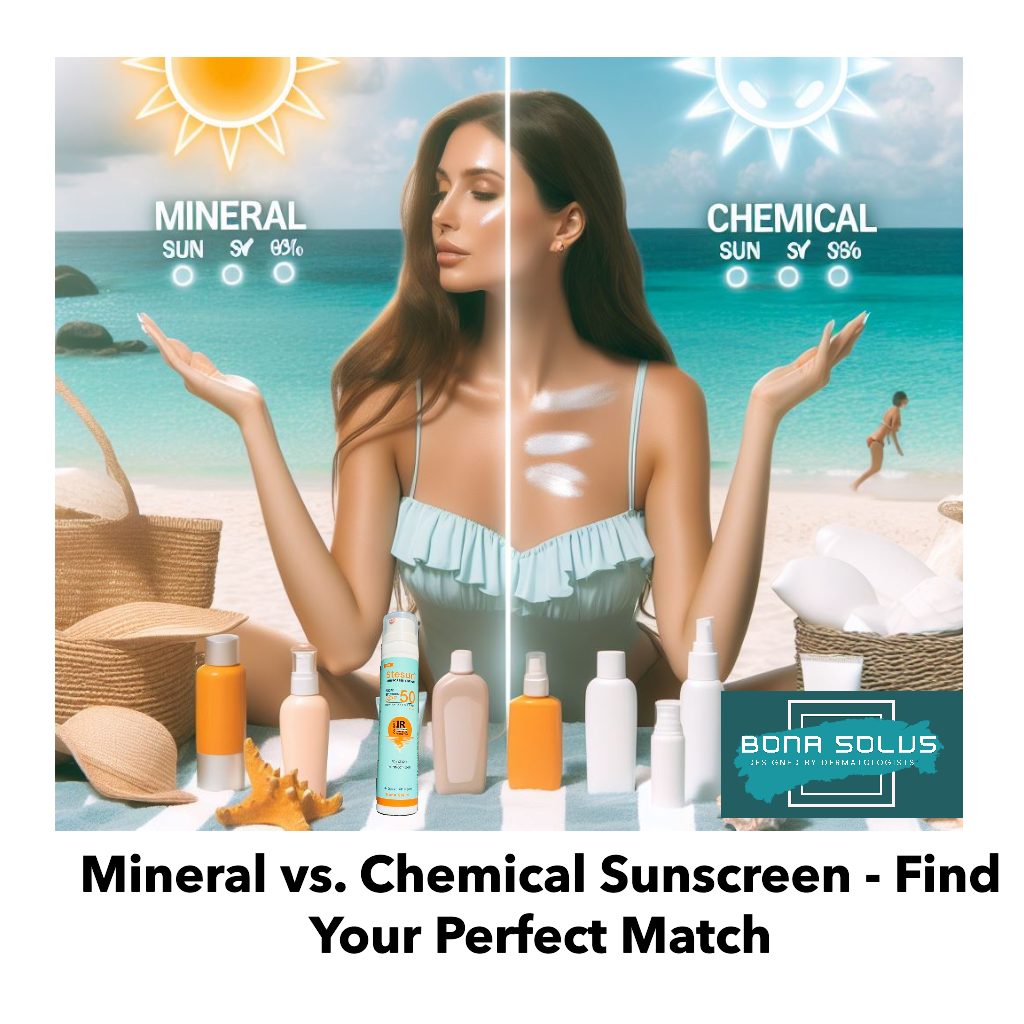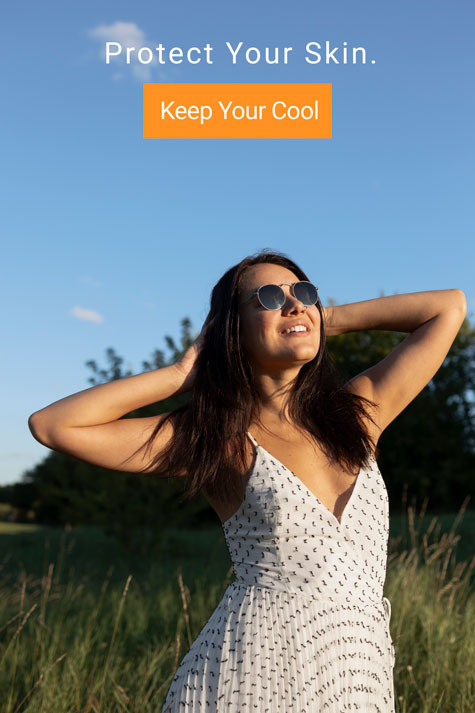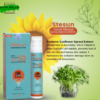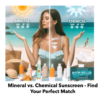Sun Safety Showdown: Mineral vs. Chemical Sunscreen – Find Your Perfect Match
Sunscreen is our first line of defense against skin cancer and premature aging caused by UV radiation. But with so many options available, how do you choose the right one? In this blog , we’ll dive into the safety showdown between mineral and chemical sunscreens and help you find the perfect match for your skin. We’ll explore how they work, their pros and cons, and how to choose the best option for your needs.
Understanding Your Sun Protection Options: Mineral vs. Chemical Sunscreen
Sunscreen comes in two main categories: mineral and chemical. Both offer protection from the sun’s harmful rays, but they take different approaches.
- Mineral Sunscreen (Physical Sunscreen): Think of mineral sunscreen as a shield. It contains natural minerals like zinc oxide and titanium dioxide that sit on top of the skin. These minerals act like tiny mirrors, reflecting UVA and UVB rays away from your skin, offering broad-spectrum protection.
- Chemical Sunscreen: Chemical sunscreens work differently. They contain organic compounds that absorb UV rays into the skin and convert them into heat, which is then released from the body. While they also offer broad-spectrum protection when formulated correctly, they may take some time to activate.
Mineral vs. Chemical Sunscreen: A Side-by-Side Comparison
Here’s a breakdown of the key differences between mineral and chemical sunscreens:
|
S. No. |
Mineral Sunscreen |
Chemical Sunscreen |
|
1. |
Acts as a physical shield, reflecting UV rays away from the skin. |
Absorbs UV rays into the skin and converts them into heat. |
|
2. |
Active Ingredients :Zinc oxide, Titanium dioxide |
Active Ingredients: Oxybenzone, avobenzone and others. Oxybenzone and octocrylene have raised environmental concerns due to their impact on coral reefs. |
|
3. |
Broad-spectrum protection (UVA & UVB rays. They shield against both UVA (responsible for skin aging) and UVB (causing sunburn) rays. Tinted Mineral Sunscreens shield against visible light as well. |
Some chemical sunscreens block only UVA or UVB rays. |
|
4. |
They are less likely to cause skin irritation and are gentle on sensitive skin |
More prone to cause skin Irritation |
|
5. |
· Immediate protection (starts working upon application) . Perfect for those who need sun protection quickly. |
Needs 15-30 minutes to activate |
|
6. |
Reef-safe (certain ingredients) |
Environmental concerns (some ingredients) |
|
7. |
Can leave a white cast (especially on deeper skin tones) No white cast in case of Tinted Mineral Sunscreens. |
No white cast |
Tinted Mineral Makeup Must-Have: Natural-Looking Coverage
- For those who prefer a touch of coverage alongside sun protection, mineral sunscreen can be a double-duty win. Many mineral sunscreens come in tinted versions that help even out skin tone and minimize any white cast.
- If you’re looking for a mineral sunscreen with a natural-looking tint, consider options like Stesun Tinted Mineral Sunscreen SPF50 PA+++ from Bona Solus. It offers broad-spectrum protection with Zinc oxide and Titanium dioxide, while the sheer tint evens out the skin tone for a flawless, natural finish.
Choosing the Right Sunscreen for You: It’s All About Your Skin
The best sunscreen for you depends on your individual needs and preferences. Here are some factors to consider:-
- Sensitive Skin?If your skin is easily irritated, mineral sunscreen’s gentle nature is likely the better choice. In Tinted Mineral Sunscreen, there is no white cast.
- Active Lifestyle?Choose a water-repellent sunscreen with an SPF of 30 or higher, regardless of type. Reapply frequently!
- Desired Finish?Both mineral and chemical sunscreens come in a variety of textures to suit your preference. Tinted Mineral Sunscreens even out the skin tone for a flawless, natural finish
Remember: Regardless of the type you choose, make sure your sunscreen has an adequate amount of SPF (30 to 50)
When it comes to sunscreen, both mineral and chemical options have their merits. However, if safety, transparency, and gentle protection matter to you, give mineral sunscreens a try. And for that extra touch of radiance, don’t forget to explore the Stesun Tinted Mineral Sunscreen!
Remember, regardless of your choice, regular application and reapplication are key to keeping your skin safe from harmful UV rays. Stay sun-smart and enjoy the outdoors responsibly!
Posts


Bona Solus – Products Designed By Dermatologists
Contact us
Customer Service
Copyright 2022 © Bona Solus. All rights reserved





